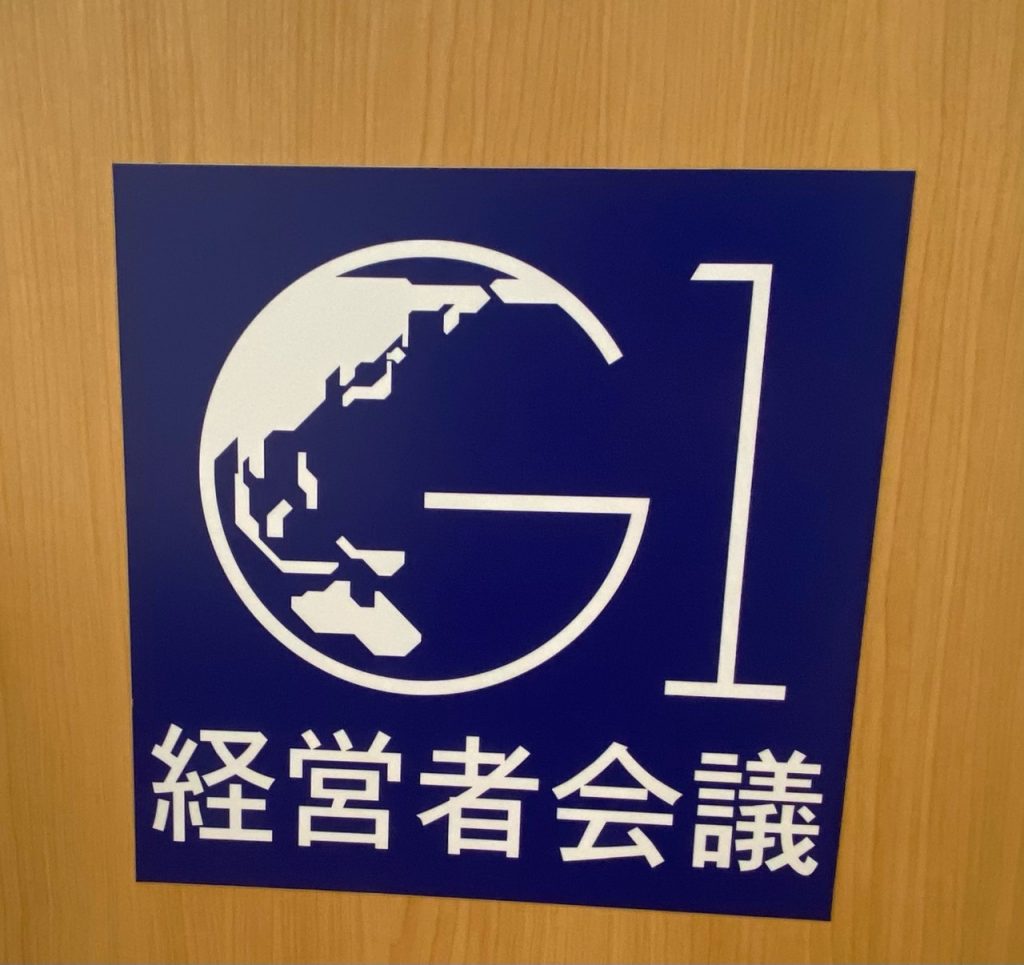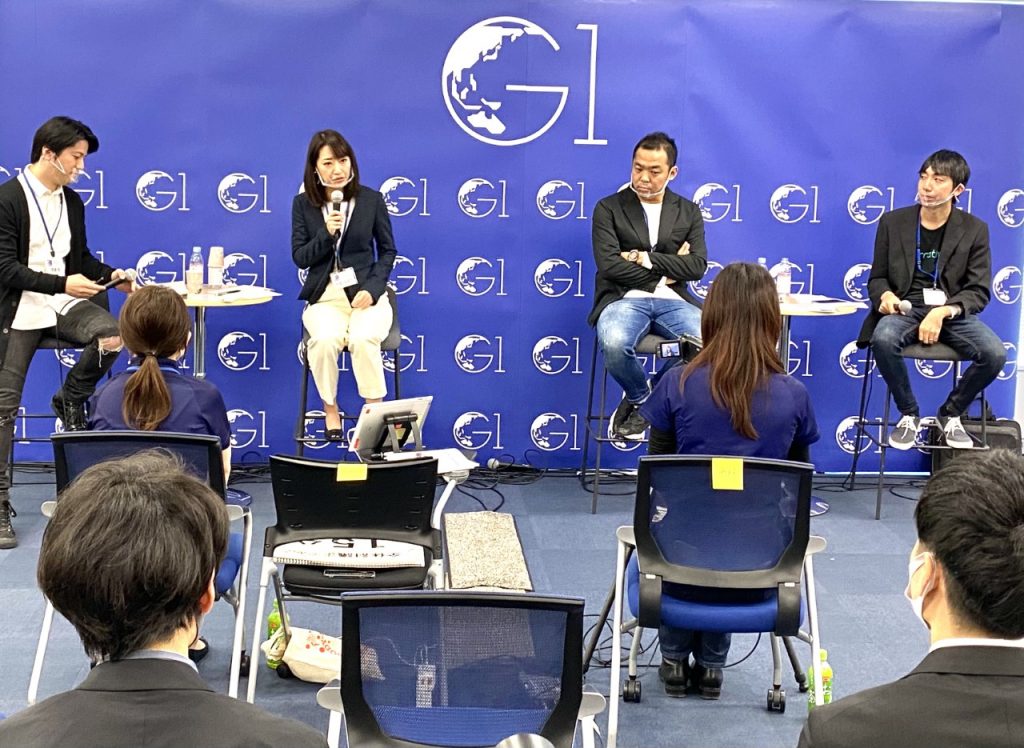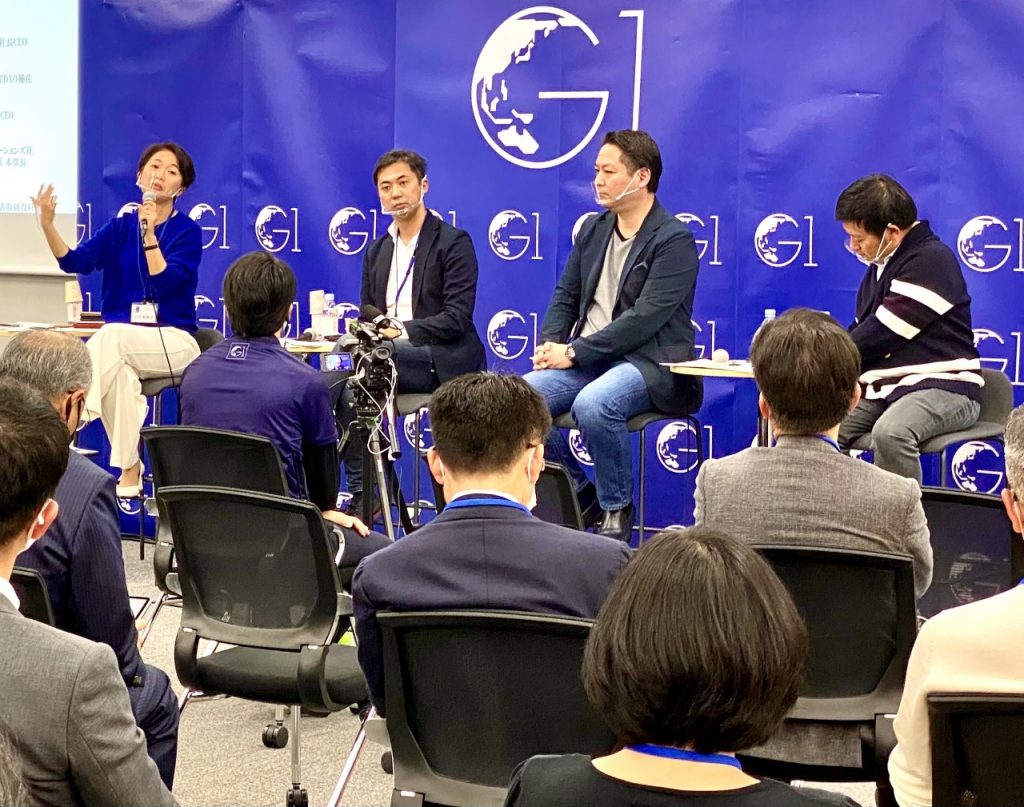





Arab News Japan
The G1 Summit, organized by G1 Institute in Tokyo, kicked off on Monday with a speech from Japanese Prime Minister Yoshihide Suga, Administrative Reform Minister Taro Kono and several other industry leaders.
Some sessions included discussions on HR management, globalization, Generation Z, distance learning and the coronavirus pandemic.
The first session was themed “Organization and HR management in the era of globalization and DX” and included the following panelists:
Shigeru Ishida, Dentsu CEO
Ishida said that Dentsu “is not ahead of globalization at all. We just changed our name to Dentsu international in September.”
“In 2013, we bought out London based company EGI, and globalization started. Digitalization took time as well, in 2017 Dentsu Digital was established. Finally. Globally, we have 47,000 employees and domestically 17,000. A percentage of 65% revenue from worldwide and revenue ratio consists of 60% globally and domestically 40%,” the CEO added.
Ishida said that each corporation should consider that creativity is the key.
“The Local team used to deal with projects, but creativity is only done through many different ideas that are sometime opposite, and only through differences, we can come up with something new which is creative,” Ishida said. “That is important for us to jump into that and it will promote people to become more creative and more productive. Globally, we are learning from other countries and we can offer other countries our values that can strengthen their weakness. With 60,000 employees worldwide we can achieve this.”
Junichi Takinami, Korn Ferry Japan, Managing Director
Boston consulting
“With our consulting business, remote work has always been not so difficult. We were forced to utilize anything we got fully to function now. We are finding online interviews for our new hires are quite efficient,” Takinami said.
“Now about 10-20% of our employed actually come to the office. IT is happening all over the world. We have now access to the assessment data for HR worldwide. Google is ahead of that.”
Takinami added that “providing emotional support for talented employees so they can stay within the company is essential. Truly talented people are looking for motivation and always looking to better themselves. We need to provide workplace environment to fit their growth motives.”
Tomoyuki Hirate, Google Cloud Japan CEO
“This pandemic has shut out the communications and logistics among people for the first time in human history. Foreign capital companies are used to borderless operations and work remotely and the infrastructure for that was already established. So the coronavirus affected us little compared to authentic Japanese companies which would rely on having an office. Establishing the new corroboration in different area, such as for retail, it’s ecommerce, for health care, it’s online medical assessment, simulation, to create digital platform to connect users is important,” Hirate said.
“Within our company, digital transformation is only achieved through breaking through existing regulations but Japan has its own merit whereas in Europe and the US, they sometimes waste time and money during the tirals and errors, while we only do things after much deliberations. By doing so while attempting to take a fresh look at ways to do things, Japan can evolve in the corona era,” Hirate added.
Another session under the topic “G1 Summit U40/ Z generation” discussed the up and coming younger generations in the workplace. The panelists included:
Haruka Yonehara, READYFOR corporation CEO :
Yonehara said that “utilizing the trend that is only available now is the key to make a movement and a mission in our society. The young generation is very motivated by having a mission that is meaningful for them. It is also important to create a workplace that is comfortable for them to stay long so employees would think that having a certain mission within the company would accomplish each person’s goal. When this is achieved, they will bring more like-minded people to the company.”
Fumiaki Koizumi, Mercari CEO
Koizumi said that younger people “can do anything they want and they are smart as well, but they don’t necessarily have themes. When we do business, people either want to have ownership, or want to do big plans and projects. We want the latter. They have big pride as well, and stimulating their pride is important. Mission and value come in hand in hand. We believe in having a difficult mission. Our messaging and evaluation fall into values and fairness.”
Koizumi added that they were “expanding globally recently and made a report in England which was very popular because using our service means they don’t need throw away stuff thus eliminating landfills.”
Akagawa Juunichi, Mirative CEO
Juunichi said: “We think it is important to consider each person’s values and missions. Teenager programmers, we have many great talents who are in their 20s. We strive to do live streaming online and provide a place through our gaming software for young people to enjoy and become creative.”
“It is important to value individual talent in 2040. Hopefully we materialize the workplace where each person can utilize his or her own talent and do whatever they want to do for career. That is the theme for Z generation,” Juunichi added.
The final session at the G1 Summit discussed the topic “Realization of Distance Leadership in the coronavirus era.” The panelists included:
Yousuke Tsuji, Money Forward CEO
Tsuji said: “We are trying to come up with a new system and new routines every day to work efficiently and utilizing technology and share motives and productivities. And to create new contents so our employees can think that coming to an office could be fun due to the lateral interactions they can enjoy.”
Matsumoto Yasukane, Raksul CEO
“How to change the process of existing work routines is the key to drive through this era. We are trying to search the most efficient way to work remotely, Since September, we are conducting that most employees only come to office once a week only. We are searching a way to meet the half way with each employee working remotely and in person at office,” Yasukane said.
Yuzuru Fukuda, Fujitsu, Managing Director
Fukuda said: “We have online meetings every day and I am finding it better because people are more relaxed especially after 5PM. Better communication is achieved this way. Also. all the management level employees are evaluated and could be demoted if they do not receive good feedback. It is important to keep our company fresh and efficient at all time from now on. It’s important to strengthen cross communication within the management.”
Yukiko Yamaguchi, Panasonic Managing Director
“Communicating directly, and cultivating new areas are tough and virtual digital communication is challenging but we need to cultivate new areas digitally now more than ever and it is greatly promoted and a must for this era. Culture and behavior change with time and takes much efforts and strong will,” Yamaguchi said.